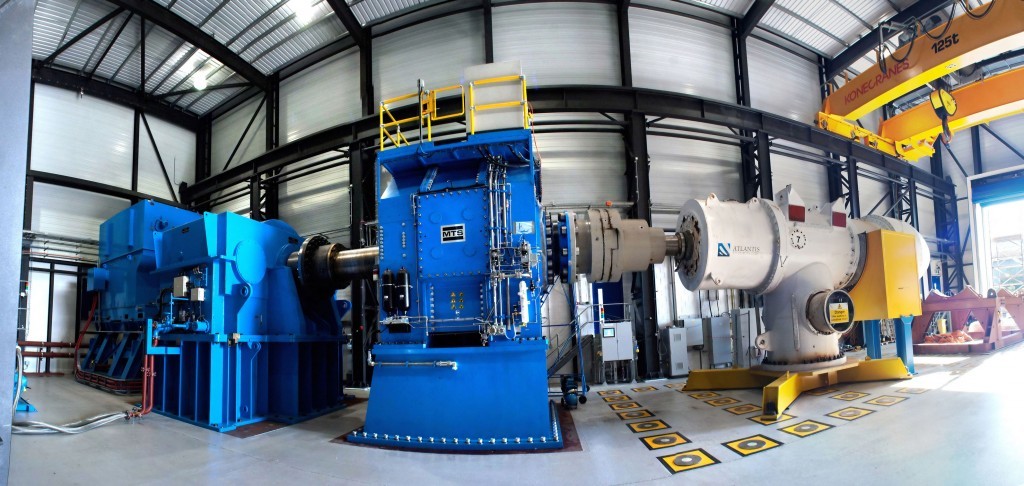
A tidal energy device being tried out in Scottish waters has been the first to complete a testing programme at the National Renewable Energy Centre (Narec).
Atlantis Resources’ AR 1000 underwent trials at Narec’s 3 megawatt capacity onshore testing Nautilus facility in Northumberland, which helps firms try out their turbine drive trains.
The firm said in two weeks of full testing it had secured performance data equivalent to four months of tidal movements.
The testing will lead up to the AR 1000’s planned deployments in the Pentland Firth, off mainland Scotland, the Bay of Fundy, off Nova Scotia, and the Gulf of Kutch, off the west coast of India.
The AR 1000 has also been undergoing testing offshore at the European Marine Energy Centre, Orkney.
Atlantis is an Australian technology developer, part owned by Morgan Stanley and state-owned Norwegian utility Statkraft.
It is part of the Meygen consortium, with Morgan Stanley and International Power/GDF Suez, which holds the rights to develop the Inner Sound of the Pentland Firth.
MeyGen says this site has a potential installed capacity of 398 megawatts, making it the largest marine power project in the world.
“We’ve learned an awful lot about the AR1000 turbine as a result of this testing programme,” said Tim Cornelius, chief executive of Atlantis.
“Our team and all of our technology contractors will now take time to review and digest the data collected, which will feed into future design considerations.”
Tony Quinn, operations director at Narec, said: “I am really pleased with the success of our first drive train test in the new Nautilus facility, which has delivered the mission-critical information it was designed for.
“Accelerated life tests, conducted from the relative sanctuary of an onshore test facility, will significantly advance the development cycle for tidal turbines and give developers in the UK a real edge as the marine energy industry approaches commercialisation.”
Recommended for you
